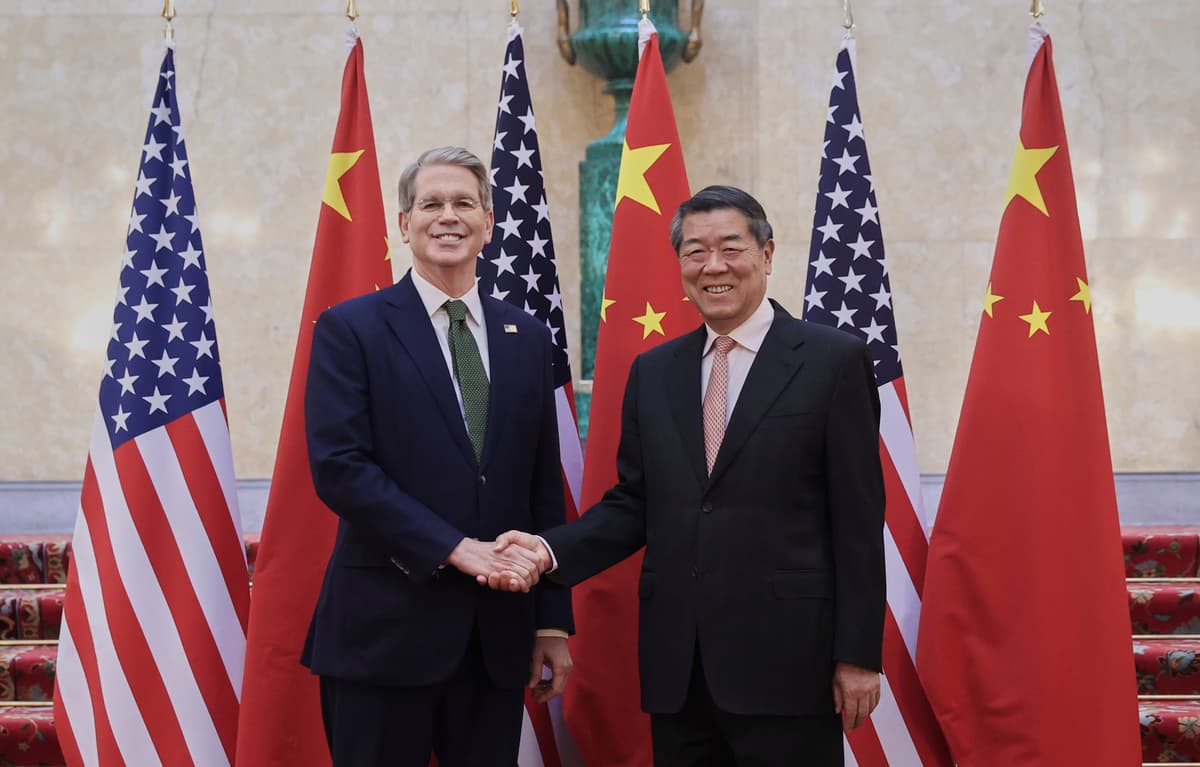Communist China Can Never Be Trusted
It is surely in the nature of communist dictatorships to blithely abrogate promises.

There’s an important story in today’s New York Times.
The Trump administration is launching an investigation into Communist China’s compliance with the 2020 trade deal, often referred to as the phase one deal.
I served on our China trade team for about two years during President Trump’s first term, as we worked laboriously between Washington D.C., Beijing, and elsewhere to come up with the deal.
Robert Lighthizer was the team leader, Secretaries Steven Mnuchin and Wilbur Ross were part of it, Peter Navarro, and so forth and so on.
It was a complex undertaking, but the bottom line, to make it simple, was this: China never lived up to its side of the bargain. Period. Full stop.
And I came away from that whole experience with a very jaundiced view that they would ever tell the truth or meet their commitments.
And, by the way, China’s reneging on that deal was much more than just their failure to purchase the agreed upon roughly $200 billion-worth of commodities.
Nah, they never followed through on market opening promises, on American business ownership pledges, on intellectual property theft. Or ending the forced transfer of technology.
It is surely in the nature of communist dictatorships to blithely abrogate promises.
When I interviewed Treasury man Scott Bessent yesterday and he started complaining that China’s not keeping their promises now on agreements that were reached a couple of months ago concerning rare earths and some other things, I wasn’t surprised.
As Mr. Trump and the American delegation get ready to meet with China and the other Asia-Pacific Economic Cooperation countries, the rumor mill at D.C. is full of talk about how America is going to turn off the spigots to China for critical software exports, semiconductor exports, jet engines, and all kinds of other products.
Mr. Trump has already charged a 100 percent tariff surcharge on Chinese imports, bringing the total now to about 155 percent. That’s because China has reneged.
Now, I asked Mr. Bessent about all this yesterday. Here’s what he said: “This is China versus the globe. It’s not just on the U.S. And I can tell you that this licensing regime that they proposed is unworkable and unacceptable.”
He added: “So we are contemplating if we are not able to negotiate a pause or relief on this regime, how the U.S. and the allies would respond but you know all options are on the table.”
Tough talk from the Treasury secretary. Yet tough talk and tough actions are always necessary when you’re dealing with China.
They cannot be trusted. They think they’re going to blackmail America with rare earth export controls.
Yet we have what they want, as well. Most importantly, we have the biggest world economy. And they need that in order to sell their exports.
The Chinese economy itself has never recovered from the property crash or Covid.
Their economic systems become more and more centrally planned and state-run. The free-market reforms of yesteryear are, well, yesteryear.
For years now, they and their Brics partners, who don’t like us at all, have been selling American Treasury bonds and buying gold. And they’re doing it to diminish the world reserve currency status of the American dollar.
Yet, as Mr. Bessent told me, pro-growth Trump policies of tax cuts, deregulation, energy dominance, and reciprocal world trade will boost the value of the dollar, and America will easily win the global race for capital.
Indeed, an interesting point, the value of the dollar bottomed last July 4. That was the day the One Big Beautiful Bill was signed into law by Mr. Trump.
And while China’s economy is languishing, America’s economy’s looking good. It looks like it’s growing at nearly 4 percent already.
So Mr. Trump’s going to meet with Xi Jinping next week.
I’m sure it’ll be a tough negotiation, but there’s nobody tougher than Mr. Trump.
And you can bet he will remember that China totally reneged on the so-called phase one trade deal in his first term.
From Mr. Kudlow’s broadcast on Fox Business Network.

